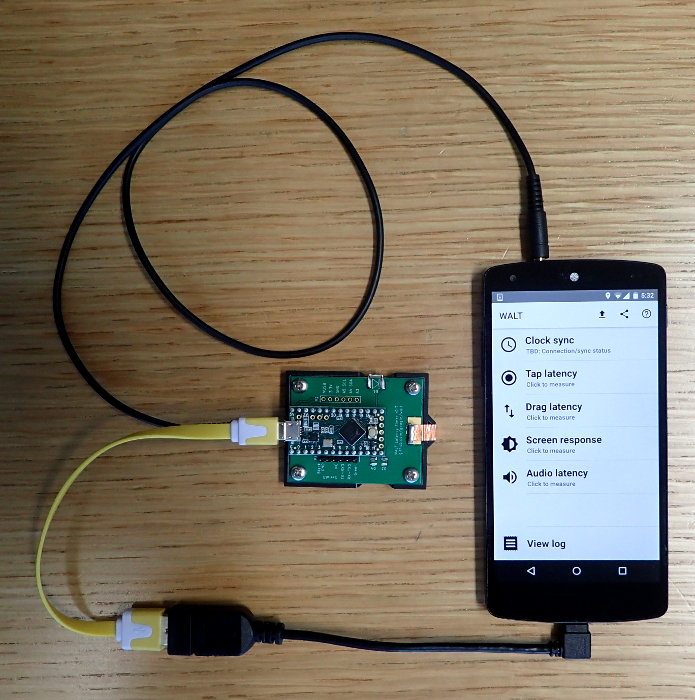You can not select more than 25 topics
Topics must start with a letter or number, can include dashes ('-') and can be up to 35 characters long.
|
|
9 months ago | |
|---|---|---|
| .. | ||
| android/WALT | 9 months ago | |
| arduino | 9 months ago | |
| docs | 9 months ago | |
| hardware | 9 months ago | |
| ios | 9 months ago | |
| pywalt | 9 months ago | |
| server | 9 months ago | |
| AUTHORS | 9 months ago | |
| CONTRIBUTING.md | 9 months ago | |
| CONTRIBUTORS | 9 months ago | |
| LICENSE | 9 months ago | |
| METADATA | 9 months ago | |
| MODULE_LICENSE_APACHE2 | 9 months ago | |
| OWNERS | 9 months ago | |
| README.google | 9 months ago | |
| README.md | 9 months ago | |
README.md
WALT Latency Timer
DISCLAIMER: This is not an official Google product.
- Post about WALT on Android Developers Blog
- Instructional videos showing how to use WALT
- Detailed usage instructions
- Mailing list - walt-discuss
- Low-traffic mailing list for major announcements walt-announce
WALT is designed to measure the latency of physical sensors and outputs on phones and computers. It can currently perform the following measurements:
- Tap latency - time from the moment a finger-like probe touches down (or up) on the screen until the kernel timestamps an ACTION_DOWN (or ACTION_UP) event. This physical contact with the screen is timed using an accelerometer mounted on the probe.
- Drag latency (scroll).
- Screen draw latency - using a photodiode that detects whether the screen is black or white.
- Audio output and microphone latencies.
- MIDI input and output latencies
The WALT app for Android can be installed from Google Play or downloaded in the releases section; the iOS app must be built from source.
Notes
- Hardware build instructions can be found in this repository under
hardware/. - Clock synchronization details are described here.
- The Android/iOS device and Teensy clocks have a tendency to diverge due to differing clock frequencies. This means they will go out of sync after several minutes. The workaround is to use the app to re-sync the clocks. Some, but not all tests in the app will sync the clocks when starting a measurement.
- Python code used to communicate with WALT from Linux and ChromeOS can be found here.
